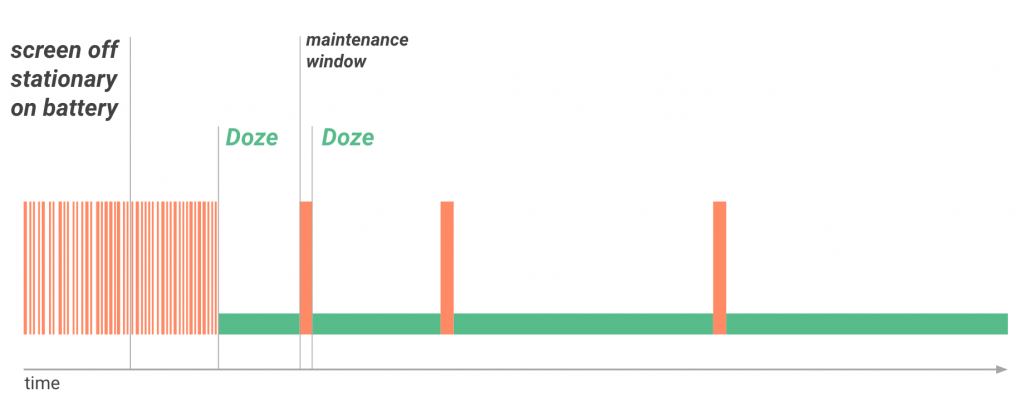The big battery brawl

Battery endurance is a big issue with modern mobile devices. Who wants a phone that goes down in the middle of the day? But with increasing screen sizes and ever faster processors, how do manufacturers mange to squeeze a day or more out of those batteries?
After a long day at work, I looked at my Samsung smart-phone and was amazed that the battery level was still at around 75%. Even without a new charge, it would most likely continue to run the next day, maybe even longer. To be honest, my previous phone was significantly bulkier, with less screen and it barely hold a charge for a complete day. Now – how do those smart-phone designers tweak the technology to be able to make the phone so beautifully thin and sleek, add more speed and brilliant, large screens and make the battery last even longer than before? Did they invent new battery technology, battery chemistry or other clever mechanisms?
Turns out, they didn’t. The truth is much simpler.
With the latest Android operating systems, Google introduced the “doze” mechanism. When not in use, the phone puts itself into a “doze” which is much more like a “coma” than the light sleep the name suggests. Timers are stopped, the network is shut down, apps are frozen. You still can get Google “push” notifications (of course), phone calls and texts, all other apps are simply put into oblivion.
Remember the movies when we see somebody hooked up to an EEG in an emergency room slowly withering away? That’s how “doze” works. Every beep is a “maintenance window” that allows Google independent apps to do their thing. The moment you put the phone down, it goes “beep beep beep”, but after a short time, the beeps get less frequent. Soon you’ll only get beeps every hour or so. And at some point, the beeps stop altogether. You can’t track your kid’s device any more, you won’t get automated news casts, anything that runs independent from Google’s firebase notification system is dead. Even worse – some manufacturers, Samsung among them, are now using even worse tricks on top of doze: They kill background processes and render alarm clocks and other apps who rely on background processing useless. As a matter of fact, if you put down your phone for a long weekend, you might not get the scheduled wakeup-call on Monday. How’s that for a “smart” phone?
Yes there are workarounds – but most people are not aware of them, they don’t necessarily work as expected and developers still have a hard time to keep their apps running reliably. As a matter of fact, things are now so tortuous, that developers can’t even be certain how an app behaves on different phones – even with the same Android version. This is a self-inflicted nightmare for the complete Android environment. And there’s no solution in sight.

Now – some folks don’t think this is a big deal. As long as they get those push notifications from Skype, Whatsapp or Twitter. But all of those apps rely on Google’s notification system. By channeling everything through it, Google created what engineers call a “single point of failure”. A device in doze depends almost entirely on Google’s firebase push system. If this should fail, for whatever reason, there goes the last and only way to get anything onto your device as long as it is in doze. Because all independent apps have been rendered unconscious. What happens if Google, in the future, charges fees for the use of their notification system? Or are required by law to stop forwarding notifications to specific apps or people? You get the idea.

You bought an expensive phone thinking you have the best and latest in smart technology. But in order to power the fancy screens and other gimmicks, manufacturers are turning their phones back into dumbphones, hoping their customers won’t find out. They are not creating bigger, smarter or better batteries, because they believe buyers are easy to dazzle by gimmicks and shiny colors.
Maybe they are right.
Read more and how this may affect your phone: https://dontkillmyapp.com/
Michaela Merz is an entrepreneur and first generation hacker. Her career started even before the Internet was available. She invented and developed a number of technologies now considered to be standard in modern web-environments. Among other things, she developed, founded, managed and sold Germany’s third largest Internet Online Service “germany.net” . She is very much active in the Internet business and enjoys “hacking” modern technologies like block chain, IoT and mobile-, voice- and web-based services.